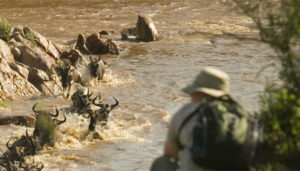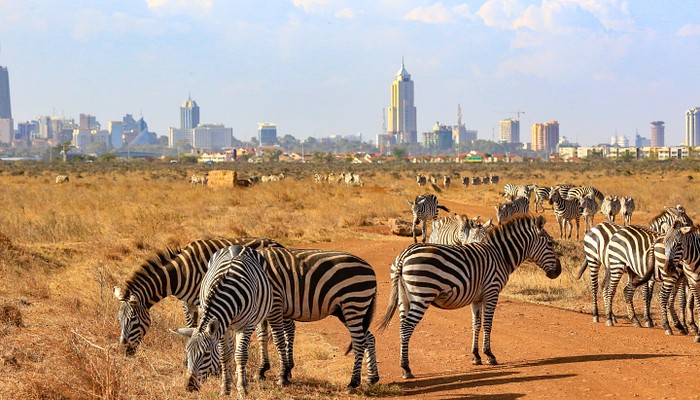Kenya Travel Information 2024 – The Definitive Kenya Travel Guide
Its raw, untouched, breathtaking, and bubbling with rich personalities, magical Kenya (as it is usually referred to) never disappoints travelers with its charming powers, thus motivating them to come back again and again.
Kenya promises unforgettable experiences with chances to see the Big Five game in different Protected Areas, the chance to experience the Great annual Migration in the Masai Mara National Reserve, and unmatched birding opportunities.
Rich cultures, jaw-dropping sceneries (such as the Great Rift Valley that slices through the country’s landscape and then changes to the sweeping grasslands, glaciers, forests, and open spaces on the slopes of Mount Kenya, the archeological hotbeds and the cradle of mankind), rich wildlife make travelers fall in love with this stunning East African country.
However, if you are a first-time visitor to magical Kenya, it might be important to know a number of things before traveling and we’ve got you covered.
Best Things to do in Kenya
Magical Kenya is known for the Great Migration that involves millions of wildebeests and an immense entourage of Zebras and gazelle that make their majestic entry into the Masai Mara Reserve for fresh pastures before returning back to Serengeti National Park in southern Tanzania.
 This normally happens between July and October and the highlight is The Mara River crossing.
This normally happens between July and October and the highlight is The Mara River crossing.
Kenya also provides a wide range of safari options with Masai Mara Reserve being the most popular. However, visitors to Amboseli National Park, Hell’s Gate National Park, and Tsavo National Park aren’t always disappointed.
If you are interested in seeing some of the remaining Northern white Rhinos in the World, then Ol Pejeta Conservancy is the place to be while lots of black and white Rhinos are found in Laikipia.
Mountain climbing/hiking opportunities are provided at the Aberdare Range National Park or the popular Mount Kenya National Park.
Kenya is also known for its spectacular beaches and Islands, and if you desire some scuba diving and whale watching, then you can visit Watamu Marine National Park. Diani is popular for its tranquil white sand beaches.
Places to stay during Kenya Safaris – Hotels in Kenya
This is one thing most travelers think about when planning a trip to Kenya.
Before anything else, there is a need for an overnight in Nairobi due to tricky International flight timings, and if this is the case, then it is a pleasure to say the Capital has lots of luxury, midrange, and budget accommodations options (in form of Hotels, Guesthouses, and others).
You will definitely find something within your budget and personal interest.
Once you venture into the wilderness (National Parks and Reserves), expect to stay in Tented Camps or Safari Lodges, and they also exist in budget, midrange, and luxury options.
When to Visit Kenya? Best Time to Visit Kenya;
The best months to explore Kenya are between July and October because they are perfect for experiencing the Great annual Migration, and Big game safaris as during these times, watering sources become scarcer thus animals gather around the few ones.
Also, grasses are shorter during these months thus making it easier to spot animals during game drives.
However, if you have plans of undertaking diving or snorkeling along the Coast of Kenya, then the best time to plan your trip is in the months of October to March.
Safety in Kenya
The question of safety is a concern for many travelers to Kenya, but the assurance is that this country is generally safe with most tourist sites having wonderful policing and stringent security checks.
However, regardless of how safe a destination might be, being cautious is important and therefore, avoiding displaying valuables in public, not walking alone, especially at night, and not providing information about the Hotel you are staying in to strangers.
Remember cases of petty crimes are inevitable especially in urban areas hence important to be vigilant at all times.
What to wear during Kenya safaris?
First, there is really no strict dress code in Kenya but depending on what activities you plan to undertake, you might need to consider packing right but also light.
For safaris in Kenya, you need a wide-brimmed hat, sunglasses, long/short-sleeved shirts, safari pants in neutral colors, a sweater for the chilly mornings and evenings during game drives, hiking boots especially if you are planning a walking/hiking safari, a rain jacket, a backpack, a good camera with enough memory space and batteries, a pair of binoculars, pair/s of shorts, toiletries (toothbrush, toothpaste, deodorant, hand sanitizer, nail clips, hair comb/brush, hand and body lotion), a basic first aid kit, and many others.
How to Get to Kenya
For International travel, air is the most common means of transportation, and the commonest airlines that fly into Kenya are Ethiopian Airlines, British Airways, Emirates, Safarilink Aviation, Turkish Airlines, Uganda Airlines, Egypt Air, Kenya Airways (the flag carrier), Etihad Airways, China Southern Airlines, KLM, and many others.
Transportation around Kenya
Air, road, rail, and water are all used when getting around Kenya, and this depends on your destination.
Visa requirements
Moat travelers require Visas to enter magical Kenya, and these are issued electronically with e-visas being required before departure.
Yellow fever Vaccinations
Travelers to Kenya are required to present valid yellow fever inoculation certificates, especially when coming from yellow fever-prone destinations.
Food and health in Kenya
It is important to always avoid street foods in Kenya, especially if you have never tasted the foods being served. Tap water in Kenya isn’t safe for drinking and brushing teeth hence it is recommended to always opt for bottled water.
We always advise visitors to have adequate travel health insurance and have access to funds that will cover any cost of medical treatment while in Kenya. Don’t worry about finding treatment because Nairobi has some of the best World-class hospitals you can ask for.
Money and Currency in Kenya
Kenyan Shillings (KES) is the local currency in Kenya and there are many Banks and ATMS points in Nairobi thus always take advantage of them before heading to the National Parks or Reserves. The good news is that credit cards are widely accepted and you can exchange your foreign currency into Kenyan Shillings.

